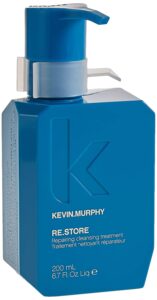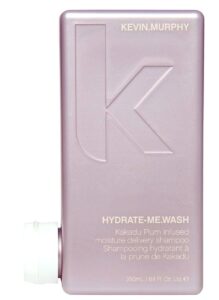A stylist’s tips on repairing post-summer hair damage
Aside from changing your wardrobe, another thing should change as leave the summer season and approach fall: your hair care routine. With the record-breaking temperatures we experienced this summer, your hair may have succumbed to the elements and your favorite summer activities. To keep it moisturized, glowing and healthy, you have to give it some extra love. We spoke to Dusti Tourere, salon director of Eutopia Salon (a runner-up for 225 magazine’s Best Hair Salon of 2022) and got some tips on the best ways to repair your hair from common summer hair damage:
Dry Hair
Like skin, your hair changes as seasons change, so as we head toward the dryer fall and winter months, your go-to products may not be best for the health of your hair. Now may be the time to invest in more heavy-duty products, such as a co-wash or a leave-in treatment.
Many stylists recommend incorporating oil into your hair care routine; not only can oils hydrate hair, but they can also seal in additional moisture from other products you might be adding to your routine.
 “I would suggest the Kevin Murphy Re.Store for dryness,” Tourere says. “It’s similar to a co-wash; you would use it every third wash, and it’s a cleansing conditioner treatment. It’s part of the Repair.Me line, which contains vitamin C, coconut and pineapple—they’re all-natural ingredients, but they’re going to be very hydrating.”
“I would suggest the Kevin Murphy Re.Store for dryness,” Tourere says. “It’s similar to a co-wash; you would use it every third wash, and it’s a cleansing conditioner treatment. It’s part of the Repair.Me line, which contains vitamin C, coconut and pineapple—they’re all-natural ingredients, but they’re going to be very hydrating.”
Tourere encourages clients to be sparing when using oils. Since they can be very heavy, you may have to use heavy soaps and shampoos to remove them, she says, thus stripping your hair.
Oily Hair
The summer heat wave can also contribute to oiliness. While it may be tempting to shampoo more and strip your hair of the unwelcome moisture, stylists like Tourere discourage trying to dry out your hair. This may lead to your hair overproducing your natural oils, leaving you with oily hair all over again. Instead, turning to a sulfate-free shampoo and incorporating dry shampoos into your routine may be a healthier way of combatting excess oil, says Tourere, as well as opting for salon-grade products to avoid further damaging your hair.
“It is a little bit more of an investment for the consumer to buy within the salon, but it’s going to go farther and it’s going to be better for your hair,” Tourere says.
Chlorine-damaged Hair
Swimming is a summer must. Unfortunately, chlorine and other pool chemicals can wreak havoc on your hair.
There are a few ways to lessen the blow of chlorine, says Tourere. First, consider prepping your hair before you make a trip to the pool. For example, before stepping out, an avid swimmer might consider dampening their hair or applying a hair mask or protective oil, both of which can stop hair from absorbing the chlorine and becoming damaged.
Tourere also encourages swimmers to invest in treatments that change their hair’s pH and adjust to the water.
“What we recommend is applying a product called STAYING.ALIVE. It’s a leave-in treatment spray for wet or dry hair,” Tourere says. “It’s going to take your hair’s pH level down to a 3 (normal hair usually lives in between the 5 to 7 zone), which will prevent your hair shaft from swelling and becoming damaged due to chlorine.”
Faded Hair
 If you have color-treated hair, beware of the sun’s effects. Since Eutopia Salon specializes in unique colors, one of the biggest issues Tourere comes across is the fading of colored hair during the summer, with blonde and red tones being most susceptible.
If you have color-treated hair, beware of the sun’s effects. Since Eutopia Salon specializes in unique colors, one of the biggest issues Tourere comes across is the fading of colored hair during the summer, with blonde and red tones being most susceptible.
“Blondes are going to get brassy and the toners are going to wash out and get brassier,” Tourere says. “It’s better to come in every six to eight weeks for a toner refresh.”
Tourere recommends Kevin Murphy’s Hydrate.Me line to maintain vibrant, color-treated hair during that waiting period.
Heat-damaged Hair
Heat and hair have never been friends. Whether it comes from a straightener, curling iron or the sun, heat can easily cause damage to hair, and UV rays are a source of damage and dullness. Tourere recommends using a simple leave-in conditioner instead of a regular heat protectant spray or serum.
“A leave-in conditioner is going to be better because it’s thicker,” says Tourere, who recommends—above all—a trip to the salon for professional care and high-quality products that will keep hair healthy and supple all year long.












